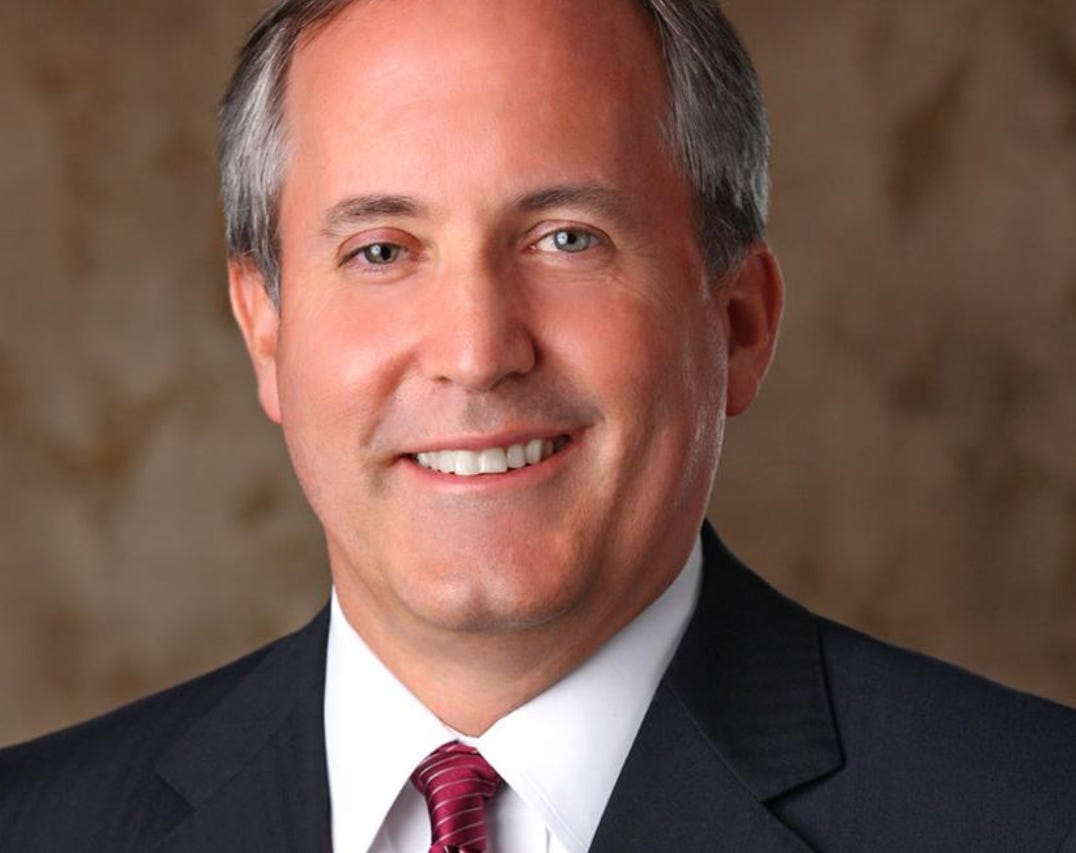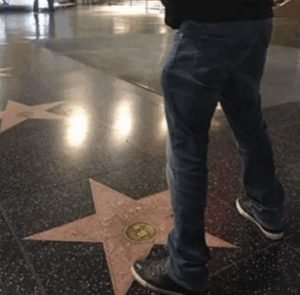Outside law firms hired by Texas Attorney General Ken Paxton to work on the State of Texas’ recent litigation against tech giant Meta, the owner of Facebook and Instagram, have submitted fee bills totaling $135,996,469 for their work on the case.
Chicago-based Keller Postman has billed the State $93,361,556 in fees, while Dallas-based McKool Smith has submitted bills for $42,634,913. Both firms are also seeking reimbursement for case-related expenses, with Keller Postman seeking $3,286,686.29 in expenses and McKool Smith seeking $3,368,965.90.
Taxpayers were charged as much as $3,780 per hour for work performed by attorneys, with work performed by paralegals costing $800 per hour.
On November 27, 2024, Paxton wrote to the Legislative Budget Board seeking approval to pay the fees and expenses billed by Keller Postman and McKool Smith. The Legislative Budget Board has not yet acted on Paxton’s request for payment.
As previously reported by The Texas Voice, Zina Bash- a Partner at Keller Postman who was the firm’s lead counsel on the Meta litigation- worked as a senior aide to Texas Attorney General Ken Paxton prior to joining Keller Postman. Bash’s father, Dr. Lawrence Gelman, donated $25,000 to Paxton in 2016, $10,000 in 2021, and an additional $10,000 to Paxton in 2022.
Sam Baxter, a Partner at McKool Smith who was that firm’s lead counsel on the Meta litigation, has also been a major donor to Paxton. Baxter, whose other political donations during 2018 and 2019 included contributions to Beto O’Rourke and Joe Biden, donated $1,000 to Paxton’s Democrat opponent, Justin Nelson, on August 30, 2018. After Paxton was re-elected in 2018, Baxter donated $10,000 to him on November 29, 2018, followed by an additional $5,000 on October 7, 2019.
The billing records submitted by the law firms showed Texas taxpayers charged thousands of dollars for simple tasks performed by partner-level attorneys. One example was a Chicago-based Keller Postman lawyer who is only licensed to practice law in Illinois spending 4.1 hours on March 31, 2022, conducting basic legal research into Texas law and legal procedure. Texas taxpayers were charged $15,498 for this work.
Another example of how Partner-level lawyers routinely billed for basic tasks came on June 1 and 2, 2023, when a Keller Postman attorney spent 11.4 hours reviewing a deposition transcript and drafting a memo summarizing the deposition. Texas taxpayers were charged $43,092 for this work. On June 15, 2023, a Partner-level attorney at Keller Postman who is not licensed in Texas spent 1.4 hours researching how to file a request under the Texas Public Information Act and another 2.2 hours drafting a public information request. Texas taxpayers were billed $13,608 for those tasks.
Even simple tasks performed by paralegals came with a hefty price tag for Texas taxpayers. On November 9, 2022, a Paralegal at Keller Postman spent 1.2 hours reviewing Black’s Law Dictionary. Texas taxpayers were charged $960 for that task. On March 10 and 11, 2022, a paralegal at McKool Smith spent 3 hours gathering LinkedIn profiles of certain Facebook employees. This was done at a cost of $2,400 to Texas taxpayers. When another McKool Smith paralegal spent 6 hours preparing graphics for a jury study on February 17, 2023, that work was billed to taxpayers at $4,800. A deposition exhibit index that took a McKool Smith paralegal 4.5 hours to prepare on November 9, 2023, was billed to taxpayers at a cost of $3,600.
The billing records also reflect the possibility that third-party lawsuit funders were involved in the State’s litigation against Meta. An entry dated June 30, 2022 was for a Partner-level attorney to “prepare litigation plan for purposes of obtaining potential funding.” This litigation plan, which took the lawyer 2.2 hours to prepare, was billed to taxpayers at a cost of $8,316.
Keller Postman has close ties to investment firms that specialize in lawsuit funding. Adam Gerchen, a Senior Partner at Keller Postman who helped co-found the firm, is also CEO of Gerchen Capital Partners. Gerchen’s biography describes Gerchen Capital Partners as “an investment firm focused on differentiated exposures to legal assets, which has raised more than $1 billion of institutional capital since its founding in 2021.”
Some billing entries do not appear to the related to the Meta litigation. One entry from a Partner-level attorney at McKool Smith on May 6, 2022 references a phone call with fellow McKool Smith Partner Sam Baxter as discussing “Google contract; address role of firm as subcontract to Lanier and how the limitations of that contract apply; further analysis of Google contract.” The Lanier Law Firm, which represents the State of Texas in litigation against Google, was not involved in the State’s litigation against Meta. This phone call and related work, which took nearly an hour, cost Texas taxpayers $3,402.
The contracts that Keller Postman and McKool Smith had with the State of Texas for the Meta litigation were on a contingent-fee basis, meaning that the firms risked not being paid if the litigation did not result in a financial recovery for the State. While the Attorney General’s office traditionally handled litigation internally, it has increasingly utilized contingent-fee contracts with outside counsel in recent years.
Notable examples of the recent use of contingent-fee outside contracts by the Attorney General’s office include litigation against Google, where Keller Postman and the Houston-based Lanier Law Firm represent the State. Last year, the Office of the Attorney General retained the Houston-based Buzbee Law Firm and Washington, DC-based Cooper & Kirk to represent the State in litigation against a group of investment companies, including Blackrock, Vanguard, and State Street. The Buzbee Law Firm and its owner, Tony Buzbee, represented Attorney General Ken Paxton during his impeachment trial in 2023.
The Lanier Law Firm was also retained on a contingent-fee basis to represent the State in litigation involving PFAS contamination, while Cooper & Kirk also has a contingent-fee contract to represent the State in a lawsuit that was filed against TikTok earlier this week.
Under Texas law, attorneys representing governmental entities in the State of Texas on a contingent-fee basis can be compensated using a formula that takes into account “the reasonable hourly rate for work performed by an attorney, law clerk, or paralegal who will perform legal or support services under the contract based on the reasonable and customary rate in the relevant locality for the type of work performed and on the relevant experience, demonstrated ability, and standard hourly billing rate, if any, of the person performing the work.”
The formula also allows for the hourly rate to be adjusted upward by a “reasonable multiplier based on any expected difficulties in performing the contract, the amount of expenses expected to be risked by the contractor, the expected risk of no recovery, and any expected long delay in recovery”, not to exceed four. The total amount of fees paid to outside counsel under a contingent-fee contract cannot exceed thirty-five percent of the funds recovered.
While the contingent-fee contracts with outside counsel allow for a multiplier of four, the highest allowed under Texas law, a Federal judge recently applied a much smaller multiplier to a fee award sought by Keller Postman in another lawsuit.
On November 30, 2024, United States District Judge Vince Chhabria awarded Keller Postman a multiplier of 1.5 times the base fees they sought in a class action lawsuit against the company TaxAct, Inc. Keller Postman and its co-counsel had sought a multiplier of 2.25 in the lawsuit, which Judge Chhabria determined was not “reasonable or appropriate,” ruling instead that a reduced multiplier of 1.5 was appropriate.
The Buzbee law firm has also seen its requested fees slashed by a Federal judge. In 2023, United States District Judge James Wesley Hendrix described the hourly rates sought by Buzbee’s firm as “exorbitantly high.” Judge Hendrix, a Lubbock-based judge who was appointed to the bench by President Trump, reduced Tony Buzbee’s requested hourly rate of $1,850 per hour to $400 per hour, reduced the requested hourly rates a senior associate attorney from $600 per hour to $300 per hour, and reduced the requested rates of junior associate attorneys from $400 per hour to $200 per hour.
The contingent-fee contract awarded to the Buzbee Law Firm by Paxton allows for base hourly rates of $945 per hour for Partners and Shareholders, $650 per hour for Of Counsel, Counsel, and Senior Associate attorneys, $475 per hour for Junior Associate attorneys, and $200 per hour for paralegals. When accounting for the multiplier of four, the Buzbee Law Firm stands to earn as much as $3,780 per hour for work performed by Partner-level attorneys.
When hiring these outside law firms on a contingent-fee basis, the Office of the Attorney General represented to the Legislative Budget Board that “the legal services cannot be adequately performed by the attorneys and supporting personnel of the [Office of the Attorney General],” and that “the legal services cannot reasonably be obtained from attorneys in private practice under a contract providing only for the payment of hourly fees, without regard to the outcome of the matter, because of the nature of the matter for which the services will be obtained.”
However, statements made by former senior staffers in the Office of the Attorney General call into question whether or not the representations made to the Legislative Budget Board are accurate. Jeff Mateer, who once served as First Assistant Attorney General under Paxton, told the Associated Press in 2021 that “there was no intention of hiring outside counsel”in the lawsuit against Google when he left the Attorney General’s office in October 2020.
Cooper & Kirk, who was hired on a contingent-fee basis to handle separate lawsuits against TikTok and investment firms, has represented other states on an hourly fee basis. In a contract with the State of Kentucky signed last year, Cooper & Kirk agreed to represent the State of Kentucky in gender dysphoria litigation at $545 per hour for all attorneys and $125 for all legal assistants. Cooper & Kirk has also recently represented the State of Florida in litigation at a rate of $725 per hour for all attorneys.
Cooper & Kirk’s contingent-fee contracts with the State of Texas, like the contract awarded to the Buzbee Law Firm, contain base rates of $945 per hour for Partners and Shareholders, $650 per hour for Of Counsel, Counsel, and Senior Associate attorneys, $475 per hour for Junior Associate attorneys, and $200 per hour for paralegals and legal assistants. Also, like the other firms hired on a contingent-fee basis, Cooper & Kirk could potentially bill Texas taxpayers as much as $3,780 per hour for work performed by Partner-level attorneys after the multiplier of four is applied.







